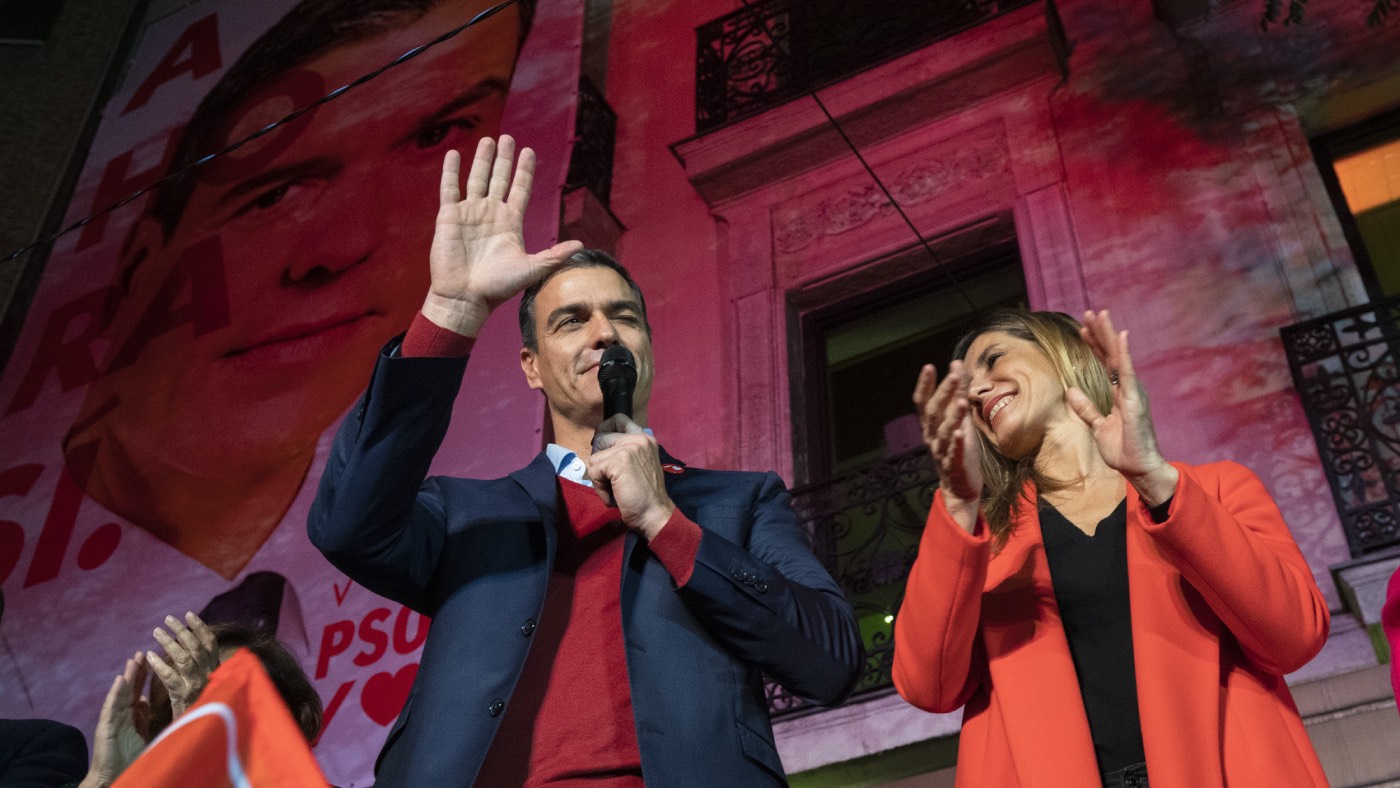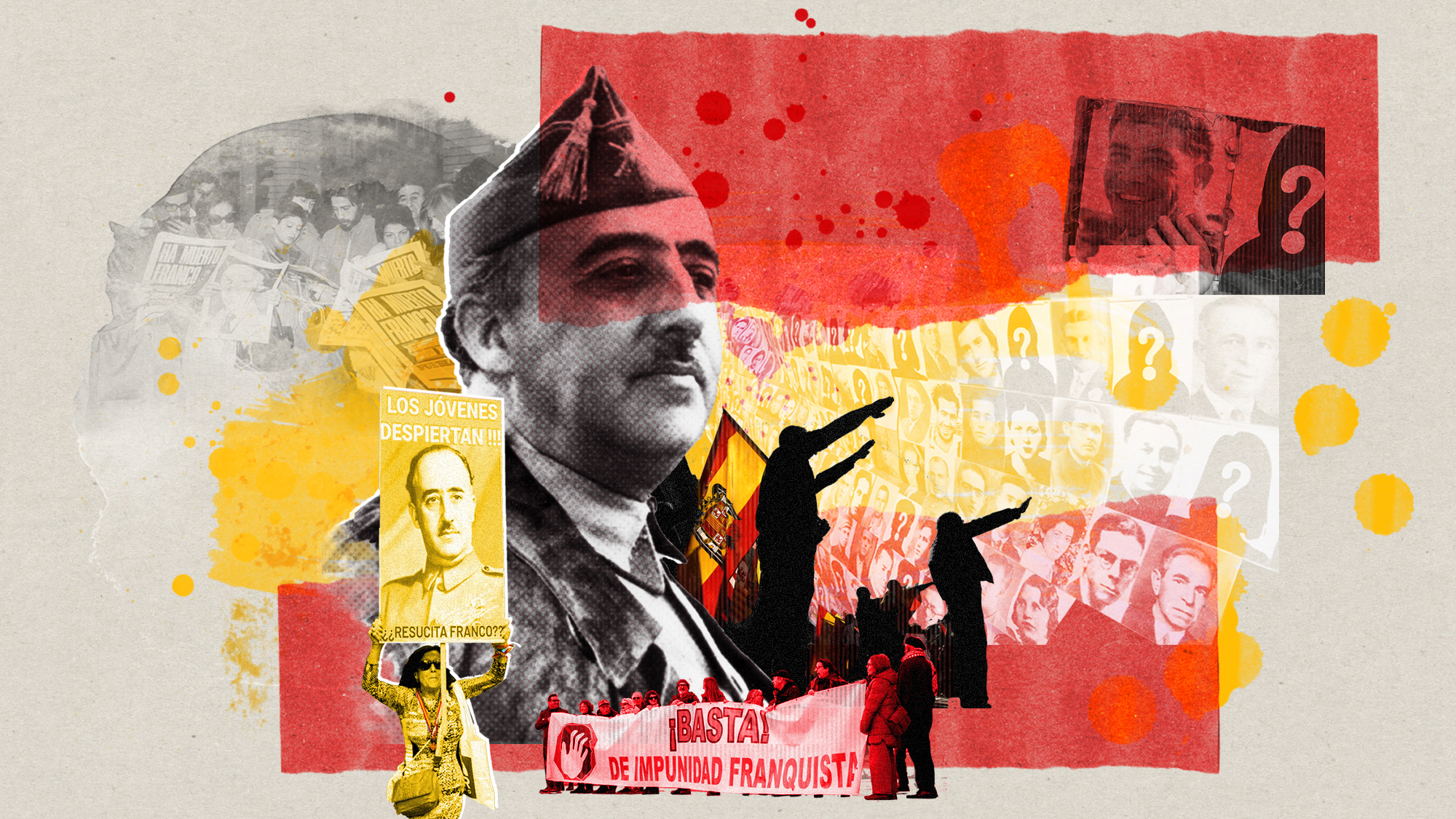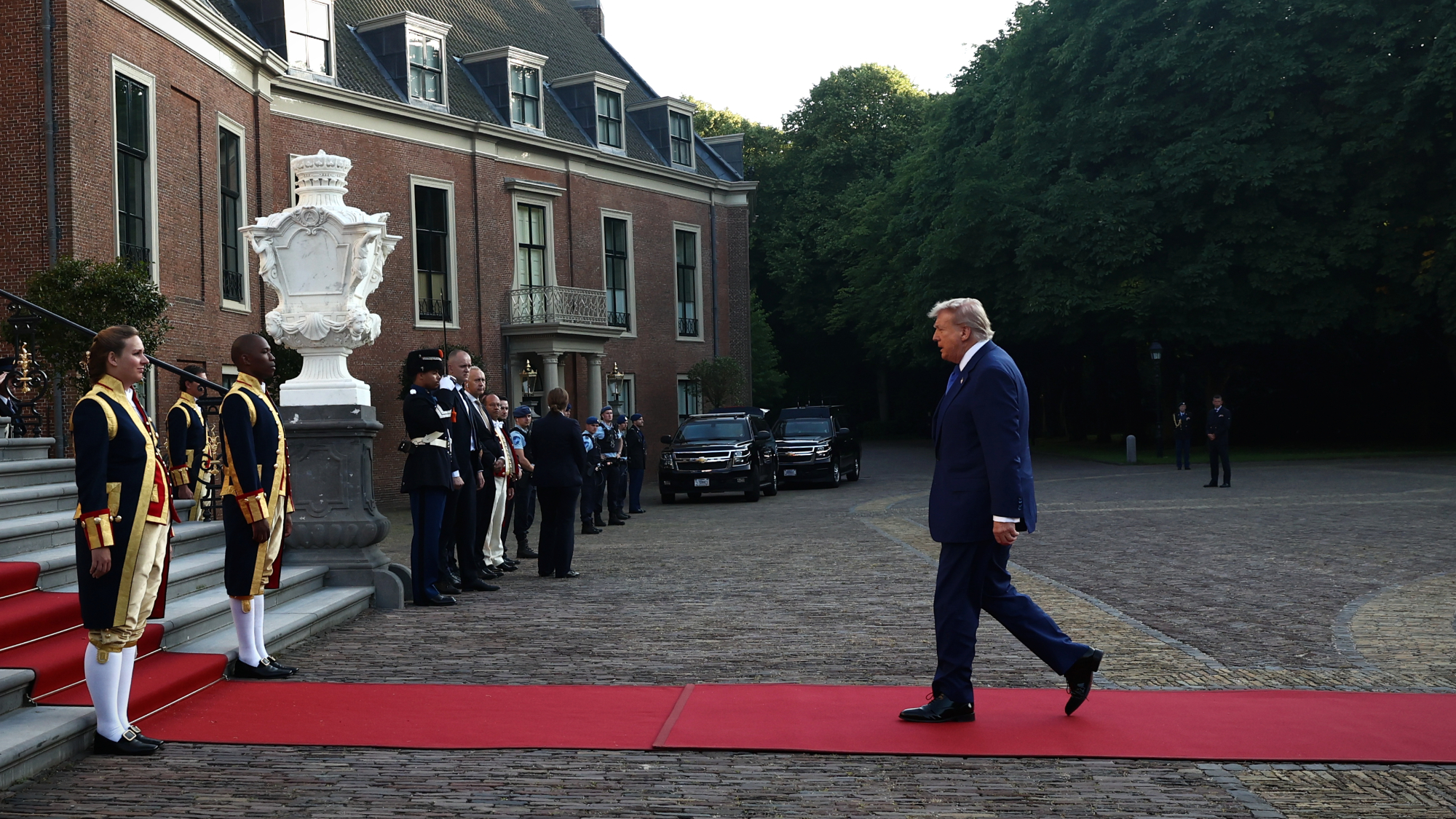Spanish election yields another hung parliament - what happens next?
Polling fails to break the country's impasse and sets up months of negotiations

A free daily email with the biggest news stories of the day – and the best features from TheWeek.com
You are now subscribed
Your newsletter sign-up was successful
Spain’s acting prime minister Pedro Sanchez says he will form “a stable government and do politics for the benefit of the majority of Spaniards” after Sunday’s election delivered another hung parliament.
The governing Socialists (PSOE) won the most seats at the polls, but fell short of a majority. Meanwhile, the far-right Vox party “vaulted into third place”, The Guardian says, and the centre-right Citizens party suffered “a humiliating collapse”.
PSOE, led by Sanchez, won 120 seats, three fewer than in April’s inconclusive election. The conservative People’s party (PP) won 87 seats, while Vox more than doubled its seat count from 24 to 52. Another significant statistic was the turnout, which points to increased apathy: participation fell from 75.5% in April to 69.9%.
The Week
Escape your echo chamber. Get the facts behind the news, plus analysis from multiple perspectives.

Sign up for The Week's Free Newsletters
From our morning news briefing to a weekly Good News Newsletter, get the best of The Week delivered directly to your inbox.
From our morning news briefing to a weekly Good News Newsletter, get the best of The Week delivered directly to your inbox.
What happens next?
The result means that the election has failed to bring an end to the country’s political impasse and Spain’s political parties are set for yet more negotiations and horse-trading to try to assemble a government.
With potentially months of bargaining ahead, Sanchez said: “I’d like to make a call for the rest of the political parties to act generously and responsibly to unblock the political situation in Spain. The PSOE will also act generously and responsibly to unblock it.”
The leader of PP, Pablo Casado, said: “We’ll see what Pedro Sanchez suggests and then we’ll fulfil our responsibility because Spain can’t carry on being deadlocked.”
A free daily email with the biggest news stories of the day – and the best features from TheWeek.com
The anti-austerity Unidas Podemos, which came fourth with 35 seats, has offered to help Sanchez back into office. “Once again we extend a hand to the Socialist party and Pedro Sanchez,” said party leader Pablo Iglesias, adding that he was ready to start talks with the party as soon as Monday.
The BBC points out that though Unidas Podemos is the Socialist party's natural political ally, a coalition between the two would still fall short of the 176 seats needed for a majority.
Spain is currently in turmoil, with unemployment figures rising by almost 100,000 last month and the European commission revising the country’s growth forecast down from 2.3% to 1.9% for this year, and from 1.9% to 1.5% for 2020.
–––––––––––––––––––––––––––––––For a round-up of the most important stories from around the world - and a concise, refreshing and balanced take on the week’s news agenda - try The Week magazine. Get your first six issues for £6–––––––––––––––––––––––––––––––
-
 The ‘ravenous’ demand for Cornish minerals
The ‘ravenous’ demand for Cornish mineralsUnder the Radar Growing need for critical minerals to power tech has intensified ‘appetite’ for lithium, which could be a ‘huge boon’ for local economy
-
 Why are election experts taking Trump’s midterm threats seriously?
Why are election experts taking Trump’s midterm threats seriously?IN THE SPOTLIGHT As the president muses about polling place deployments and a centralized electoral system aimed at one-party control, lawmakers are taking this administration at its word
-
 ‘Restaurateurs have become millionaires’
‘Restaurateurs have become millionaires’Instant Opinion Opinion, comment and editorials of the day
-
 How corrupt is the UK?
How corrupt is the UK?The Explainer Decline in standards ‘risks becoming a defining feature of our political culture’ as Britain falls to lowest ever score on global index
-
 ‘The West needs people’
‘The West needs people’Instant Opinion Opinion, comment and editorials of the day
-
 The high street: Britain’s next political battleground?
The high street: Britain’s next political battleground?In the Spotlight Mass closure of shops and influx of organised crime are fuelling voter anger, and offer an opening for Reform UK
-
 Is a Reform-Tory pact becoming more likely?
Is a Reform-Tory pact becoming more likely?Today’s Big Question Nigel Farage’s party is ahead in the polls but still falls well short of a Commons majority, while Conservatives are still losing MPs to Reform
-
 Revisionism and division: Franco’s legacy five decades on
Revisionism and division: Franco’s legacy five decades onIn The Spotlight Events to mark 50 years since Franco’s death designed to break young people’s growing fascination with the Spanish dictator
-
 Taking the low road: why the SNP is still standing strong
Taking the low road: why the SNP is still standing strongTalking Point Party is on track for a fifth consecutive victory in May’s Holyrood election, despite controversies and plummeting support
-
 What difference will the 'historic' UK-Germany treaty make?
What difference will the 'historic' UK-Germany treaty make?Today's Big Question Europe's two biggest economies sign first treaty since WWII, underscoring 'triangle alliance' with France amid growing Russian threat and US distance
-
 Trump embraces NATO after budget vow, charm offensive
Trump embraces NATO after budget vow, charm offensiveSpeed Read The president reversed course on his longstanding skepticism of the trans-Atlantic military alliance